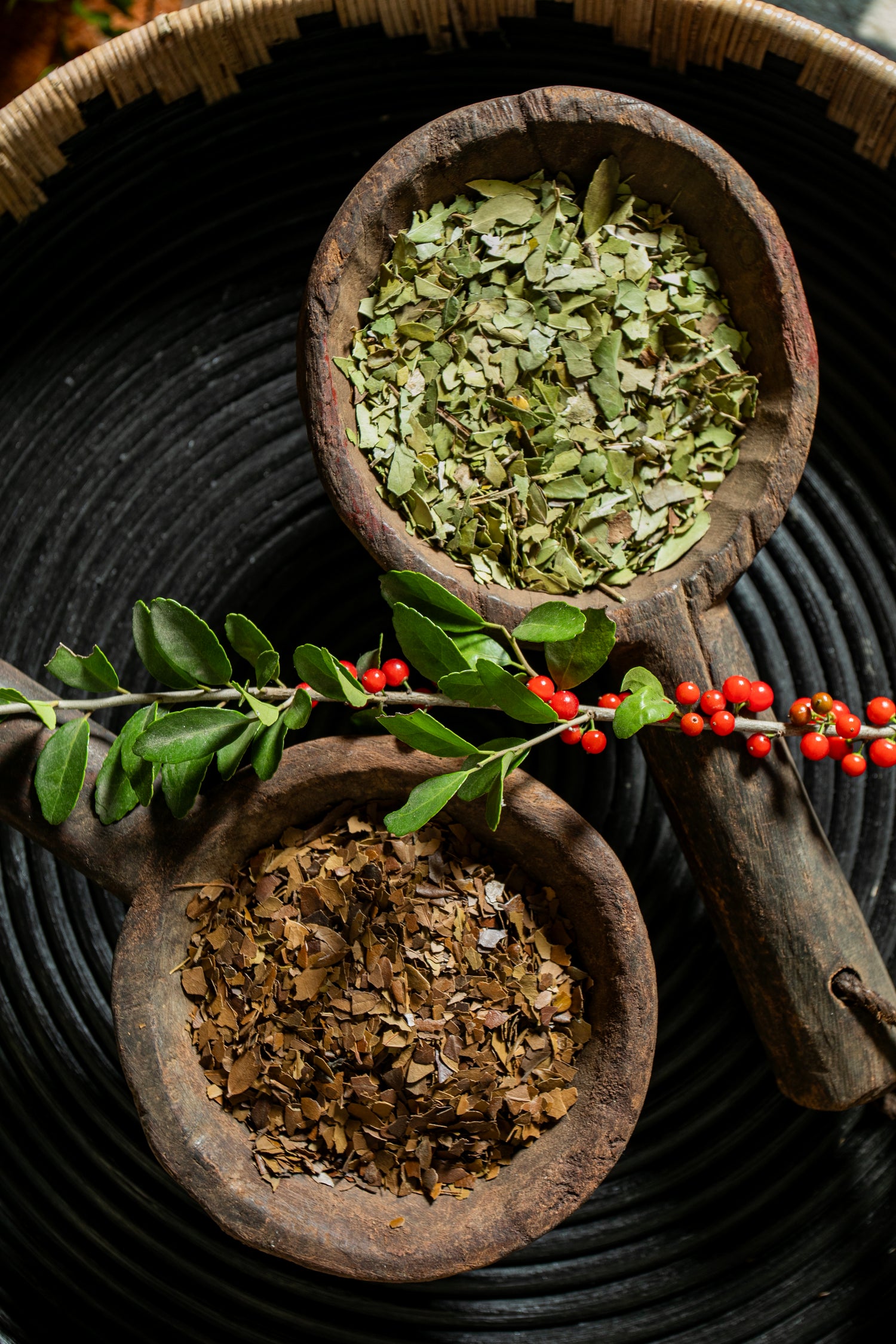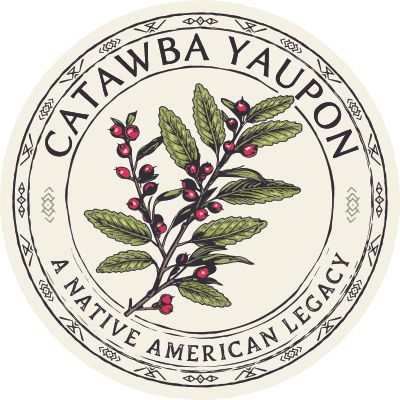
About Yaupon
Yaupon Holly is a native tree of the Southeastern United States, derived from the Catawba word “yup,” meaning tree. Thriving along the Atlantic and Gulf coasts, from Virginia to Texas, Yaupon is the only caffeinated plant native to North America Known by various names: The Beloved Tree, Asi, the Purifier, and the Black Drink—it holds a special place in both nature and culture.
The History of Yaupon
Archaeological evidence shows that Yaupon has been an integral part of Native American culture for over a millennium. The earliest known use dates back to 1050 AD at Cahokia Mounds in Illinois, where Yaupon residues were found in ceramic vessels. Although the exact origins are unknown, it’s clear that Indigenous peoples have long valued this plant.
• American Settlers: Early settlers traded with Native Americans for Yaupon tea, exporting it to Europe under names like Carolina Tea, South Seas Tea, and Cassina. The Spanish called it "Indian Chocolate" due to its sweet flavor, and it was later known as "Liberty Tea", used in Boston after the Tea Party and popular among soldiers during the Civil War.
• The Forgotten Tea: By the mid-1800s, Yaupon tea’s popularity waned due to the displacement of Native American tribes and the banning of Indigenous rituals. Economic pressures and social stigmas caused Yaupon to fall out of favor, with imported teas becoming a symbol of status. A damaging label, "Ilex vomitoria," assigned by botanist William Aiton in 1789, further tarnished its reputation. Though some tribes and coastal communities continued its use, Yaupon largely faded from American culture by the 1860s.
• Yaupon Revival: After nearly 150 years of obscurity, Yaupon tea is making a comeback. Named the #1 food trend of 2023 by Whole Foods, Yaupon is gaining recognition for its unique flavor, health benefits, and sustainable cultivation—appealing to modern consumers looking for eco-friendly alternatives to coffee and imported teas.

Health Benefits of Yaupon Tea
- Rich in Antioxidants: Contains powerful compounds like chlorogenic acid, neochlorogenic acid, and cryptochlorogenic acid that combat oxidative stress and promote overall health.
- Natural Energy Boost: Provides gentle, jitter-free energy with a moderate caffeine content (40-60mg per 8 oz. cup) and theobromine, a natural stimulant also found in chocolate.
- Supports Heart Health: Rutin, a bioflavonoid found in Yaupon, known to improve circulation and strengthen blood vessels.
- Anti-Inflammatory Properties: Saponins in Yaupon tea help reduce inflammation, potentially aiding in joint health and recovery.
- Promotes Digestive Health: Saponins also support a healthy gut by acting as natural prebiotics.
- Immune System Support: Antioxidants and other bioactive compounds help strengthen the body's defense against illness.
- Mood Enhancement : The combination of caffeine and theobromine can uplift mood, promote mental clarity and increase focus without the jitters or crash found with coffee and other caffeinated drinks.

Sustainability: A Native Tradition
Yaupon is a shining example of sustainability and eco-consciousness. This resilient native plant thrives naturally on rain and sunshine, adapting to a variety of soil types without the need for irrigation or chemical fertilizers. With minimal environmental impact, Yaupon is sustainably harvested through careful hand pruning, ensuring healthy growth and preserving wild populations. As demand for eco-friendly products grows, Yaupon stands out as an excellent alternative to water-intensive crops like coffee, which consumes 35 gallons of water before it even reaches your cup. By choosing Yaupon, you not only support sustainable farming but also honor Native American values by respecting and protecting the earth.
These statements have not been evaluated by the FDA and are not intended to diagnose, treat, cure, or prevent any disease. Consult your healthcare provider before using herbal teas, especially if you are pregnant, nursing, or taking medication, and to determine appropriate caffeine intake.


